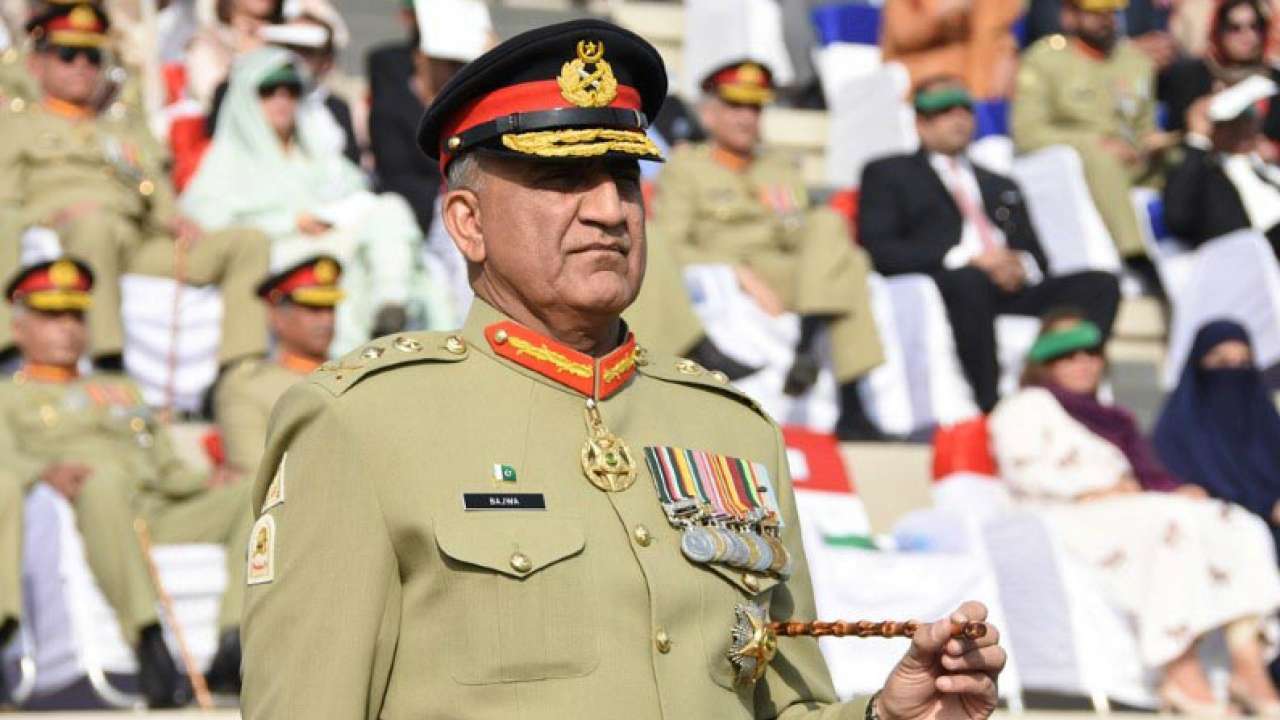
Pakistan’s army chief General Qamar Javed Bajwa has suddenly become very eloquent. In recent weeks he has been using multiple platforms to enunciate his own ideas about the way forward for this nation and even at times advising the neighbours.
In one of his recent speeches at the passing-out parade of cadets at the Pakistan Military Academy in Kakul, Gen Bajwa suggested that “the route to peaceful resolution of Pak-India disputes — including the core issue of Kashmir — runs through comprehensive and meaningful dialogue. While such dialogue is no favour to any party, it remains the inevitable precursor to peace across the region. Pakistan remains committed to such a dialogue, but only on the basis of sovereign equality, dignity and honour.”
Given the centrality of Pakistan’s military in the nation’s foreign policymaking, Gen Bajwa’s comments that Pakistan is a peace-loving country seeking harmonious and peaceful co-existence with all countries, especially with its neighbours, may seem farcical to many in New Delhi and Kabul. However, they have an import which cannot be denied.
Last month in an off the record conversation with the Pakistani media, Gen Bajwa seems to have suggested that while the army did not wish to derail Pakistan’s civilian democracy, it would not stand by and watch if politicians were deemed to be incompetent. At a time when Pakistan’s judiciary is seen in a confrontation with mainstream political parties, especially the PML (N), he also supported the role of the judiciary in taking politicians to task.
On foreign policy, the Pakistani army chief rejected the charge that the army often plays the “role of a hateful neighbour trying to destabilise others” but insisted that “establishing Pakistan as a proud, peace-loving country which wants peaceful coexistence with the world” was his aim. However, lest he be misunderstood he claimed that “if provoked, threatened or pressurised, it will show its full muscle power to the enemy to prove its strong commitment to the motherland.” He is also reported to have said that the Modi government was stubborn about not talking, “but within two to three years due to its growing economy [India] will realise the need for a peace dialogue with Pakistan.”
Together these statements are being termed as the ‘Bajwa doctrine’. It is interesting that Gen Bajwa’s eloquence has attained salience in an election year, signalling once again how the Pakistani army is trying to reassert its role as the ultimate arbiter of not only Pakistan’s foreign policy but also its democratic underpinnings.
Nawaz Sharif’s return as the Prime Minister in 2013 was the high watermark of Pakistan’s democracy with the first-ever political transition in Pakistan from one elected government to another through elections. Some had viewed it as the consolidation of democratic forces in Pakistan but Pakistan’s military intelligence complex soon came back to draw clear red-lines for Pakistan’s civilian authority. Last year, Sharif became the 18th Prime Minister of Pakistan to resign without completing his full term in office following a decision by the country’s Supreme Court to disqualify him from office.
And earlier this month, the Supreme Court of Pakistan decided to impose a lifetime ban on Sharif from contesting elections using article 62 (1)(f) of the nation’s constitution which calls upon elected politicians to have the flawless character of the Holy Prophet of Islam. The civilian political space celebrated the downfall of Sharif not realising that it was their curtailment as well. The democratic political order in Pakistan is collapsing and the political parties who should be challenging this remain blissfully unaware of the long-term political costs. The fall of Sharif is being celebrated but it’s the fall of democracy which Pakistan needs to worry about.
The military-judiciary nexus has now ensured that weak governments will now be the norm and so the balance of power will be in favour of the military. It doesn’t matter if in the process the economy goes into a downward spiral and all the recent gains made by Pakistan are lost. With impending elections in Pakistan and strong prospects of a weak civilian government, India’s options will get even more restricted. Despite taking a hard line on talks with Pakistan, back-channel dialogue has continued between New Delhi and Islamabad. It is unlikely that India’s calculus will undergo any change in the near future with its own electoral cycle coming into play later this year.
India is exploring its own ‘reset’ with China and it may have some impact on the trajectory of India-Pakistan ties as well. If China is serious about a ‘win-win’ partnership with India, then it will have to push Pakistan into reaching some understanding with India. The underlying asymmetry of objectives between a status-quoist India and a revisionist Pakistan continues to frame the structural imperatives of South Asian strategic landscape. As India continues to rise in global hierarchy while Pakistan continues to be mired in a socio-economic meltdown, the desperation on the part of the Pakistani military is even more palpable.
India’s growing diplomatic investment on its eastern frontier, underscoring its Bay of Bengal identity, has become a preferred means of engaging with the wider Southeast Asian region. New Delhi wants to emerge as an Indo-Pacific power while Islamabad, keen to ensure parity with India, continues to view the world through its long-standing ideological prism. Towards this end, Pakistan continues to use the instrumentality of jihadi terrorism to achieve its strategic objectives of weakening India and securing political concessions. The bogey of “Hindu India” continues to preserve the Pakistan army’s status and position in the nation’s power hierarchy as the final saviour of the ‘idea of Pakistan’.
Gen Bajwa’s recent musings are more of the same as far as India is concerned. He is merely signalling that the military is now fully in control. Thankfully, this is something most in India are well aware of.
The author is Professor of International Relations, King’s College London, and a Distinguished Fellow at Observer Research Foundation. Views are personal